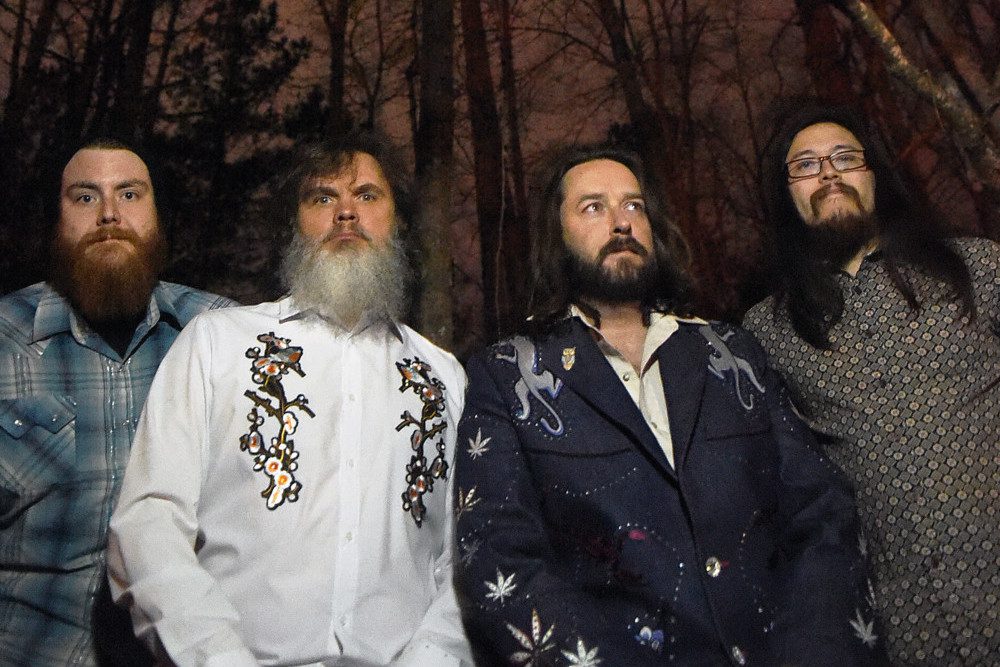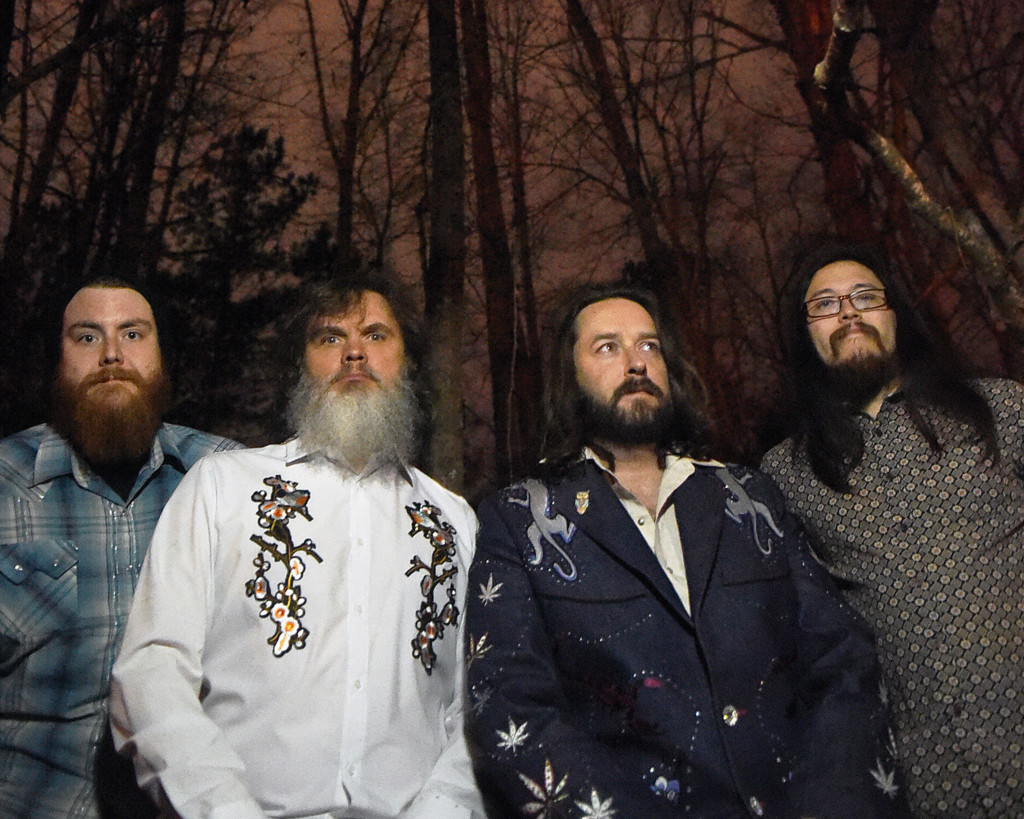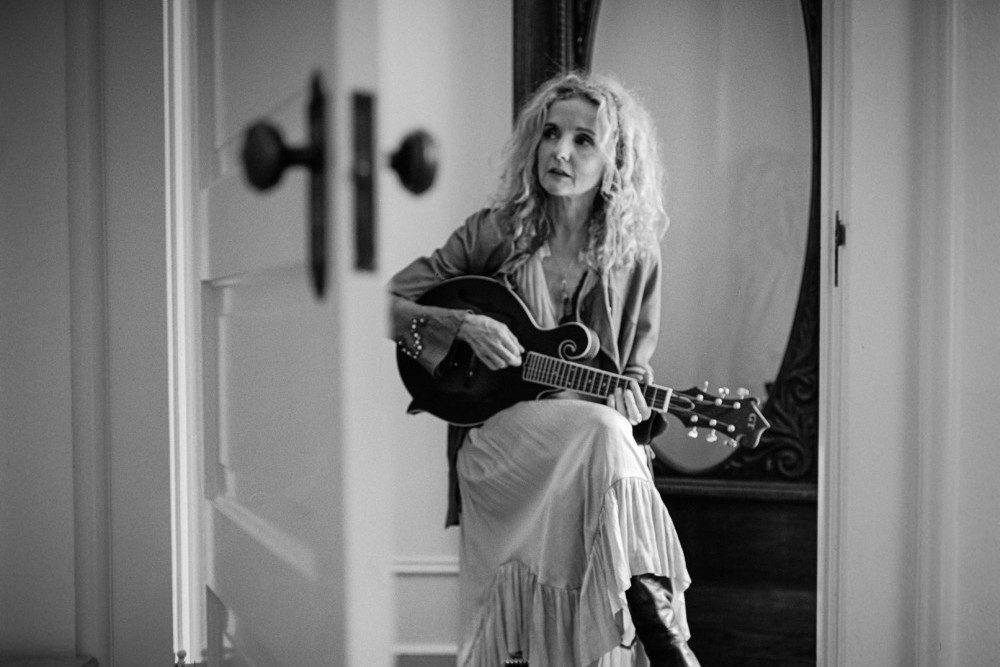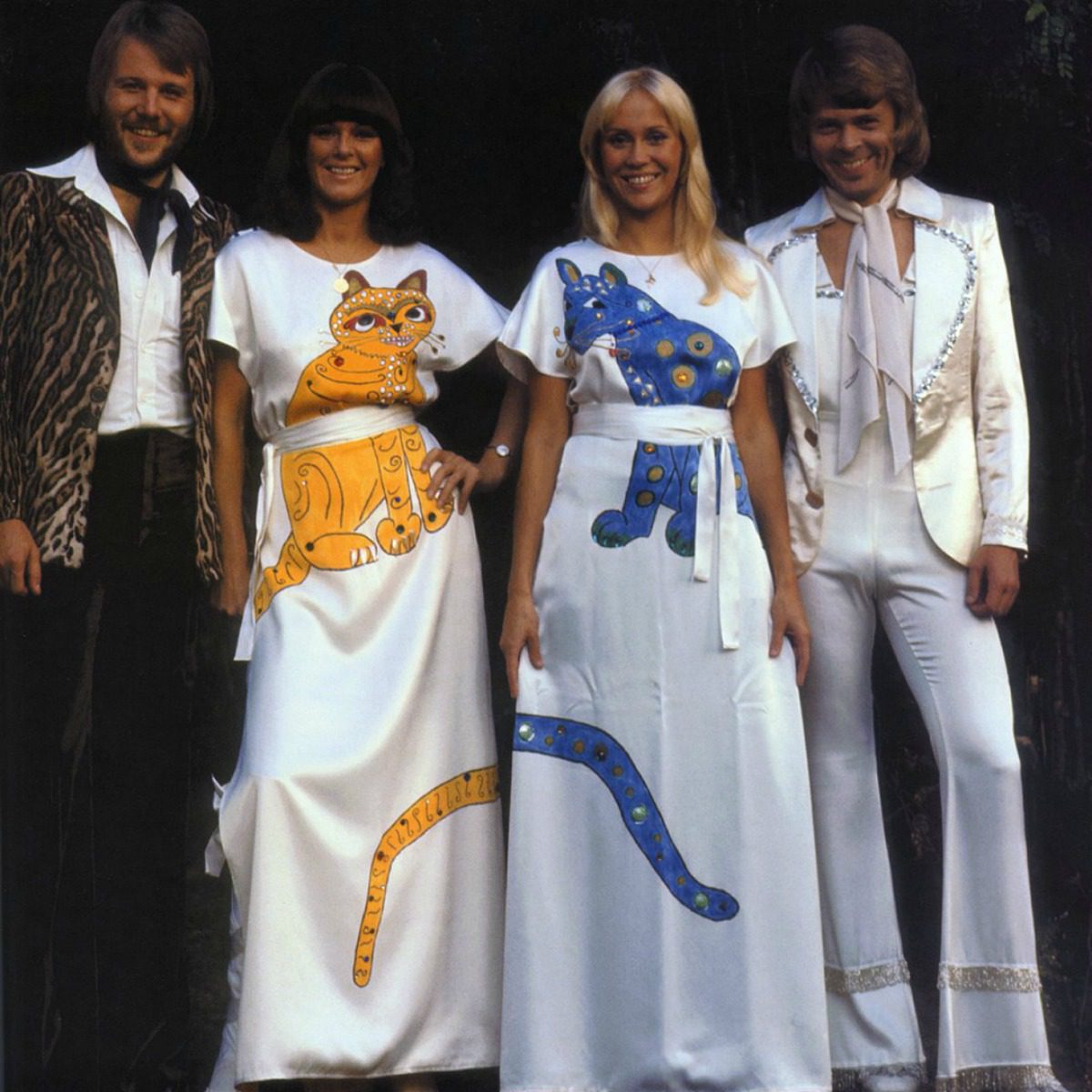PLAYING ATLANTA: The Pinx Reinvent Rock ‘n’ Roll with Music Video for “Mercy!”


The Pinx rock. That is all.
Okay, that’s not all, but the Atlanta-based rock quartet truly does rock…and roll, and boogie-woogie, and power-pop all night long. Drawing on influences as varied as Duane Allman, MC5’s Fred “Sonic” Smith, and the lush Stax catalog, as well as rock standards (if you can call them “standard”) like Led Zeppelin and The Rolling Stones, The Pinx’s dedication to drawing listeners out of the mundanity of every day life and into a groovy state is equally evident on the stage and in their latest music video, the power-packed, haunted-hotel-based rocker “Mercy!”
I caught up with founder and lead vocalist/guitarist Adam McIntyre and lead guitarist/vocalist Chance McColl to talk all things The Pinx, shooting a music video in a 100-year-old ballroom, and rock ‘n’ roll’s ability to desegregate and unify.
AF: You guys are the definition of pure rock; how do you draw from such a rich history and create something that feels fresh and unique to you?
AM: I don’t think the band could ever move very far away from the overall trifecta of The Kinks (all we did was change a letter, and then a few years later our original drummer Jim changed the “ks” to an “x”), The Rolling Stones and Led Zeppelin. Chance and I have a lot of influences from blues guitarists.
At any time, I’ve usually got four main influences that we’re more conscious of, with lots of little decorations… sort of like four legs on a table, which can support all the other things we like. Once everything in the world has been recycled 1000 times, the simplest way to start finding your own voice is to take a look at a handful of things you point to and say “that feels like how I feel” and you start warping that. For the first record, I feel like the “legs” on the table were Led Zeppelin, DEVO, Eagles of Death Metal and Muse. Second record was specifically drawing on Cheap Trick, Motörhead, The MC5 and Tom Petty. I did every solo on that record holding a guitar pick Rick Neilsen handed me, but I was thinking about the MC5’s Wayne Kramer and Fred “Sonic” Smith.
For the new album, Sisters & Brothers, I feel that the influences got wider apart, the table got bigger, weirder and may have made specific influences harder to pinpoint. I felt the Atlantan ghost of the Black Crowes acutely on this one, and I feel like Chance may have evoked some ZZ Top. I know our power-pop forefathers Big Star bubbled to the surface for not the first time, and I worked hard to do Otis Redding proud while the band evoked a Stax sound. I guess we had Memphis on our minds with the whole Stax/Big Star thing, plus I feel like a little more ’70s metal showed through. It’s half brown leather and half black leather. My point is that I feel like originality is in a unique combination of influences based on mood, not simply taking a band’s songs and changing a thing or two. Though that can be fun, with the original songwriter’s blessing.
AF: What is your personal musical history? Did you grow up in musical households, or did you find music later?
CM: My mother’s father was a great bluegrass guitarist. Big influence on me. Otherwise my big influence was my older sister’s record collection.
AM: I did not really grow up in a musical household except for the records, of course. Dad owned an acoustic and an electric but I can count on a couple hands the times he played them in front of me. He really resisted the idea of me catching the music bug, but I did. I found a ’60s R&B group called Bobby Moore & The Rhythm Aces when I was about 8 and talked my way on stage with them in spite of knowing nothing about guitar. They let me sit in for two songs while coaching me, and when I came home that night, all I could think about was getting back on stage to play music somehow. I’d get in trouble for touching Dad’s guitars, so for a few years all of my guitar time was spent hiding in the closet with a blanket over me.
AF: What led to the formation of The Pinx?
AM: Indie rock and power pop had been my genres as a solo guy. I really wanted to be the next Todd Rundgren or Matthew Sweet, and something about that always felt forced. In Nashville, any time I rocked, people hated it. Any time I jumped or got loud, people hated it. Any time I did anything that felt like me, people hated it. So when I moved to Atlanta in 2006, I immediately began putting together a rock band. I wanted to see how it felt. It felt great. And the wilder I got, the more people here liked it. The harder I rocked, the more people liked it. I realized that Nashville just was not a good fit and never had been. I decided that the band would be a celebration of everything I and my bandmates love about rock and roll. Things might get bluesy or heavy but I think right in the middle of our influences, Little Richard is banging on a piano and yelling “wooo!”
I’ve been lucky to find kindred spirits along the way, and Chance definitely is that. He’s a lead guitarist’s lead guitarist, versatile among many styles. Chuck is a recruit from a Desert Fuzz Rock band called Buzzards of Fuzz, and Cayce was in a brilliant sort of indie rock band called the Lord High Admirals before we got him.
CM: I had recorded a solo record and Adam was suggested to me by a fellow musician to do the mixing. We met, I then started following Adam’s musical career and loved what I heard, and his mix was exceptional. When it came time for an album release, I asked Adam to join the band for that night. I immediately knew there was something there based on how well we gelled as guitarists. It seemed like he played the parts he needed to while I played the parts I needed to and the parts perfectly meshed. That’s been a rare event in my life – to blend so well with another guitarist. Shortly thereafter he asked me to join The Pinx.
AF: Let’s dive in to “Mercy!” It’s your latest music video from an album where you handed over some of the “hats” to producers Brian Carter and Joey Jones. How did it differ from your previous releases?
AM: It’s a bit more hi-fi. Normally I feel like I’m playing Twister when I’m making a record with a band; I’m supposed to be paying attention to my job as a frontman while also getting good takes out of a band with sometimes complicated interpersonal dynamics, I’m supposed to be getting good sounds recorded while also keeping the energy level high, and I’m supposed to be playing perfectly while also knowing what’s close enough without going overboard? I got tired of compromising one thing for another and just wanted to do MY job while everyone else did theirs. I think Sisters & Brothers came out sounding like a million bucks because I didn’t hang on to the “but I’m a producer!” hat. Plus, nobody trusts you to maintain objectivity on their performance while you’re concerned with your own.
AF: Do you feel like you were able to be more experimental without having to worry about manning the controls?
AM: I think we got to have the usual fun in a great studio. Our biggest experiments are yet to come.
AF: What was the collaboration like, and why did you decide to go that route as opposed to your previously self-produced releases?
AM: Things started out still pretty me-centric years ago and therefore happened all at my studio. As things progressed, the BAND became the focus. I always want the next album to be bigger and better and sound like a band, so recording it live with few overdubs actually served multiple purposes. The sound quality definitely went up that way.
AF: What inspired “Mercy!” – lyrically and musically?
AM: I was thinking about the band Redd Kross, and I reached back to a memory of being about to play and getting slapped on the ass by a lady who thought I was her husband. I flipped the roles. I wrote a rough draft a few years ago and presented it to The Forty-Fives, who passed on it. I finished it up and the guys were playing it just like it is on the record within a few minutes of my showing it to them.
AF: What are your songwriting and recording processes like?
AM: Songwriting happens however it can. I write a lot of lyrics, I record a lot of riffs into my phone and I also beatbox and scat a lot of garbage into my voice notes. At some point I do some editing and get the raw materials together and either call a song done or I bring it to Chance to see what he thinks it’s missing. Chance presents me with fully realized instrumentals to write lyrics to, or he brings in a full song like he did on “Time & Trouble” which is one of my favorites on the new album. From there, the band makes lots of choices on their own. I try not to choke the band’s ideas about the songs because so much of the time, things turn out better than I expected thanks to their ideas.
AF: You guys filmed the music video at a 100-year-old haunted hotel. What drew you to the location, and what was it like to film a rock video in a historic ballroom?
AM: Our drummer Cayce and his wife run that hotel and were kind enough to let us shoot there. It’s a haunted old place and a charming location. We did disturb some guests at the hotel with our loud video shoot, so I don’t think it would be okay to do that again. We ran through the song a few times and had a lot of fun. Stupid good fun.
AF: You’re such huge players in the Atlanta scene! What has it been like to translate your music to the stage? What do you hope your audience takes away from every show?
CM: For [Sisters & Brothers], so much of the record was recorded live based on how we’d already been auditioning the songs live so it was easy.
AM: We take the translations one step at a time, but as I said before, the new album was pretty much live in the studio, so it required very, very little adaptation. We just rehearse and pour ourselves into it until suddenly the song becomes another character in the room with us. What I love hearing is the person who comes up to me saying “This is what rock and roll feels like – I’d forgotten!” or some variation. I also want people to walk out feeling lighter than they came in. Shake off that bad energy. Walk out with a grin.
AF: Georgia’s got a massive rock history, but a lot of it is rooted in Macon. What’s it been like to not only play a part in revitalizing the genre but bring it a little farther north to Atlanta?
AM: This band is by definition a celebration of all that’s rock and roll. I throw all sorts of things into that; my mentors, the MC5’s heavy Detroit rock, the Led Zeppelin-meets-Devo sound that used to get us called “stoner rock” for years around Atlanta, the slide-based “Thunderboogie” sound that mixes Bo Diddley with big riffs, that Rolling Stones “Chuck Berry in a western suit” type thing they had on Exile On Main Street, and just huge blacklight doses of Sabbath, Zeppelin and Deep Purple’s trippy heavy jams. Does Duane Allman fit into that? Sure does. So does all that other stuff, with a big old grab bag of every American blues artist that every white British guy ever claimed changed his life. Southern Rock is a necessary part of that equation, but one or two songs a record is almost more than enough.
AF: What’s next for The Pinx?
AM: More songs, more recordings, more shows. Weirder, harder, faster.
Keep up with The Pinx on Facebook and stream their latest album, Sisters & Brothers, on Spotify now.




